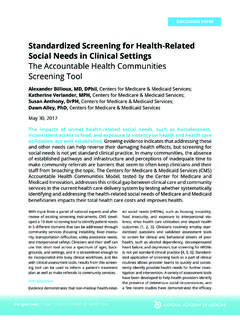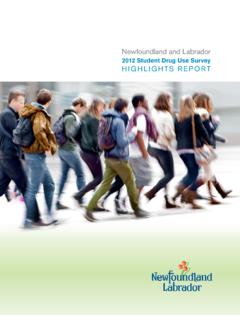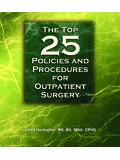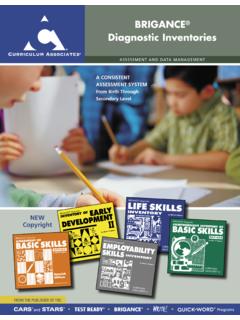Transcription of MO-FEAT
1 Missouri Families for E ec ve Au sm Treatment MO-FEAT . Winter 2016. 15455 Manchester Rd #3685 Ballwin, MO 63022. (3328) Table of Contents Table of Contents ..1 Dentistry ..75. Where Do I Start? ..2 Developmental Therapy ..76. Learn ..3 Diagnostic Evaluations for ASDs ..79. What is Autism? ..3 Early Childhood Services (3-5 Years) ..84. Special Education ..6 Early Intervention (0-3 Years)..93. Educational Resources, Supports and Advocacy ..102. Effective Treatment ..7. Educational Resources: Private Schools ..112. Connect With Help ..8 Equipment ..116. About MO-FEAT ..8 Estate Planning and Special Needs Trusts ..116. The Department of Mental Health (DMH) Division Feeding and Nutrition Therapy ..117. of Developmental Disabilities ..9 Funding Source ..120. Hair Salon ..124. The Office of Autism Services and the Missouri Autism Projects.
2 11 Legal Legislative Advocacy ..127. Missouri Autism Project Map ..12 Lending Senate Bill 40 Boards (SB40) ..13 Music Support Groups and Parent Mentor Programs ..14 Neurology ..134. Occupational Therapy ..134. Find Therapy Services - Under age 3 ..15. Optometry and Ophthalmology ..139. Parents as Teachers ..15. Parent Education and Missouri First Pediatrician ..150. Find Therapy Services - Ages 3 and Physical Therapy ..151. Department of Elementary and Secondary Psychiatric Care ..153. Education (DESE) ..17 Psychological Services ..156. IEP Frequently Asked Questions ..19 Recreation/Leisure ..160. Religious Organization with Special Needs Programs Adult Services and Supports - General ..21..167. Adult Day Habilitation ..25. Research Study Opportunities ..169. Adult Diagnostic Evaluations for ASD.
3 28. Resource Agency ..170. Adult Employment ..29. Resources for Speakers of Other Languages ..181. Adult Independent Living ..31. Respite Provider ..182. Adult Residential Care ..37. Sibling Supports ..185. Adult Transition Services ..41. Sleep Disorders Clinic ..187. Advocacy (Educational) ..44. social Skills Applied Behavior Analysis ..45. Speech and Language Assistive Technology/AAC ..52. Staff Training ..205. Audiology ..56. Support Group ..215. Behavior Therapy ..57. Alphabet Soup (Acronyms)..222. Child Care ..65. Index ..224. Community Education Speakers ..67. Crisis and Emergency Care ..73. MO-FEAT | Table of Contents 1. Where Do I Start? Step 3: Find Step 1: Step 2: Connect Step 4: Therapy Learn with Help Organize Services Call Missouri Start a system for Families for Under age 3: organizing reports About autism Effective Autism and notes.
4 Visit our website Treatment at Parents as Teachers Keep a binder with 636-527-3328 or all reports from 1-877-275-8988 doctors, therapist, or email school, and any Missouri First testing. Organize Steps Program them by date or by type of service - Call your local Private Programs however it makes About special Regional Office or Insurace Based sense to you. education. (DMH) to talk Bring this binder Contact Missouri with someone with you when Parents Act about eligibility meeting a new (MPACT), parent for services. Ask treatment training and for Intake. provider. information center 800-743-7634 Age 3 and up: Find a support Schedule an Work towards a group or a evaluation routine schedule parent to talk through your for home. Try with. public school making a visual About effective Call our office district's special schedule with autism treatment.
5 And we'll services pictures or Learn about safe provide you with department words. Warn and effective a link to a before your child your child in treatments. parent mentor turns 3. advance of any options. changes in the schedule. 2 Where Do I Start? | MO-FEAT . Learn What is Autism? Autism Spectrum Disorder (ASD) is a developmental disability that can cause significant social , communication and behavioral challenges. A diagnosis of ASD now includes several conditions that used to be diagnosed separately: autistic disorder, pervasive developmental disorder not otherwise specified (PDD-NOS), and Asperger syndrome. These conditions are now all called Autism Spectrum Disorder. ASD lasts throughout a person's life, although symptoms may improve over time. Some children with ASD show hints of future problems within the first few months of life.
6 In others, symptoms may not show up until 24 months or later. Some children with an ASD seem to develop typically until around 18 to 24 months of age and then they stop gaining new skills, or they lose the skills they once had. Studies have shown that one third to half of parents of children with an ASD noticed a problem before their child's first birthday, and nearly 80% 90% saw problems by 24. months of age. Source: Signs and Symptoms A person with ASD might: Not respond to their name by 12 months of age Repeat words or phrases over and Not point at objects to show interest (point at an over (echolalia). airplane flying over) by 14 months Give unrelated answers to questions Not play "pretend" games (pretend to "feed" a Get upset by minor changes doll) by 18 months Have obsessive interests Avoid eye contact and want to be alone Flap their hands, rock their body, or Have trouble understanding other people's spin in circles feelings or talking about their own feelings Have unusual reactions to the way things Have delayed speech and language skills sound, smell, taste, look, or feel social Skills social issues are one of the most common symptoms in all of the types of ASD.
7 People with an ASD do not have just social "difficulties" like shyness. The social issues they have cause serious problems in everyday life. Examples of social issues related to ASD: Does not respond to name by 12 months of age Does not understand personal space boundaries Avoids eye-contact Avoids or resists physical contact Prefers to play alone Is not comforted by others during distress Does not share interests with others Has trouble understanding other people's Only interacts to achieve a desired goal feelings or talking about own feelings Has flat or inappropriate facial expressions MO-FEAT | Learn 3. Medical Diagnosis of Autism Spectrum Disorder (ASD). Step 1 - Developmental Screening Developmental screening is a short test to tell if children are learning basic skills when they should, or if they might have delays.
8 During developmental screening the doctor might ask the parent some questions or talk and play with the child during an exam to see how she learns, speaks, behaves, and moves. A delay in any of these areas could be a sign of a problem. All children should be screened for developmental delays and disabilities during regular well-child doctor visits at: 9, 18 and 24 or 30 months Additional screening might be needed if a child is at high risk for developmental problems due to preterm birth, low birth weight or other reasons. In addition, all children should be screened specifically for ASD during regular well-child doctor visits at: 18 months 24 months Additional screening might be needed if a child is at high risk for ASD ( , having a sister, brother or other family member with an ASD) or if behaviors sometimes associated with ASD are present *The Parent's as Teacher's program also conducts screenings for delays during home visits.
9 Please contact your local school district to find out if Parent's as Teachers is available in your area Types of Screening Tools There are many different developmental screening tools. CDC does not approve or endorse any specific tools for screening purposes. This list is not exhaustive, and other tests may be available. Selected examples of screening tools for general development and ASD: Ages and Stages Questionnaires (ASQ). This is a general developmental screening tool. Parent-completed questionnaire; series of 19 age-specific questionnaires screening communication, gross motor, fine motor, problem-solving, and personal adaptive skills; results in a pass/fail score for domains. Communication and Symbolic Behavior Scales (CSBS). Standardized tool for screening of communication and symbolic abilities up to the 24-month level; the Infant Toddler Checklist is a 1-page, parent-completed screening tool.
10 Parents' Evaluation of Developmental Status (PEDS). This is a general developmental screening tool. Parent-interview form; screens for developmental and behavioral problems needing further evaluation; single response form used for all ages; may be useful as a surveillance tool. Modified Checklist for Autism in Toddlers (MCHAT). Parent-completed questionnaire designed to identify children at risk for autism in the general population. Screening Tool for Autism in Toddlers and Young Children (STAT). This is an interactive screening tool designed for children when developmental concerns are suspected. It consists of 12 activities assessing play, communication, and imitation skills and takes 20 minutes to administer. 4 Learn | MO-FEAT . Step 2 - Comprehensive Diagnostic Evaluation The second step of diagnosis is a comprehensive evaluation.





